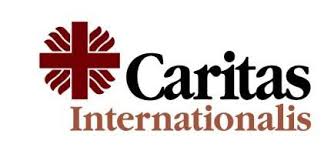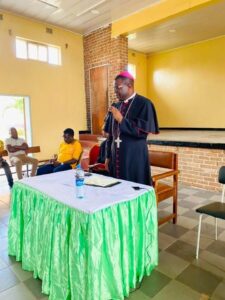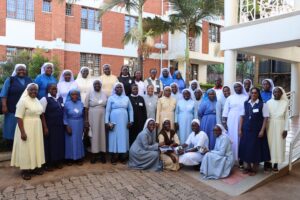CARITAS: Caritas Internationalis Calls for Technical Collaboration and Local Production of Covid-19 Vaccines

Sr. Jecinter Antoinette Okoth, FSSA
An official from Caritas Internationalis, a confederation of Catholic relief agencies across the world has urged the international community during the ongoing 46th Regular session of the United Nations Human Rights Council (UN-HRC) to support technical collaboration with the poorest nations and promote local production of Covid-19 vaccines so that all nations can have access to the vaccines.
In its message published Thursday, February 25, Caritas Internationalis is advocating for urgent action for universal and equal access to Covid-19 vaccines.
Addressing the international community, the Secretary General Aloysius John said that “Technical collaboration with the poorest nations and the Issues related to patent as a common good must be addressed urgently.”
He added that there is need to promote “local production of vaccines in Africa, Latin America and Asia within the next six months.”
The Human Rights Council is an inter-governmental body within the United Nations system responsible for strengthening the promotion and protection of human rights around the globe and for addressing situations of human rights violations and make recommendations on them.
The council is made of 47 Member States, which are elected by the majority of members of the General Assembly of the UN. Besides, the Council’s Membership is based on equitable geographical distribution and at present the African States has 13 seats.
In their Thursday message while Caritas Internationalis appreciates the commitment of the international community for making the vaccines available for the poorest nations, they note, “Access to vaccines against the pandemic is a basic Right” and that though in many poorest countries ,“it will not be automatic.”
In relation to this, Caritas Internationalis has advised that “accompanying measures must be taken to build awareness, getting the vaccine to the remotest areas and ensuring optimal storage mechanisms.”
In last month’s appeal for equitable distribution of Covid-19 vaccines, the President of Caritas Internationalis Luis Antonio Cardinal Tagle and the Prefect of the Dicastery for the Promotion of Integral Human Development Peter Cardinal Turkson noted that, “The access to vaccine across the world has not been as equitable as it should be, and it is sad to note that not all nations and those who want or need the vaccine can get it because of supply issues, while in our interconnected world, the vaccines must be made available equitably.”
Following Covid-19 effect on the world’s economy, the Caritas Internationalis General Secretary based in Rome highlighted the need to “undertake the debt remission of the poorest countries and allocate funds to strengthen their national health systems.”
Additionally, the organization has asked the international community to “allocate financial and technical support to local civil society organizations to ensure careful awareness building of the local communities on preventive care.”
Among other discussions for the 46th Regular session of the UN-HRC month long meeting from February 22-March 23, the inter-governmental body will deliberate on the promotion and protection of all human rights, civil, political, economic, social and cultural rights, including the right to development.


